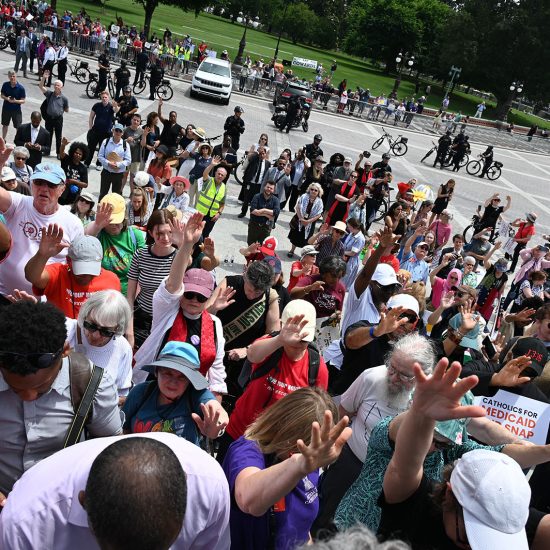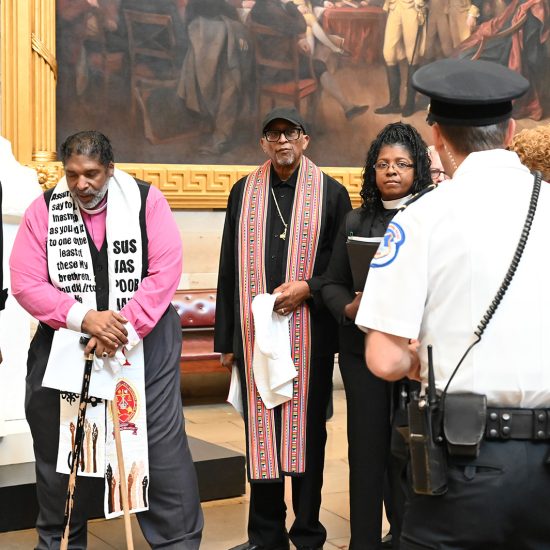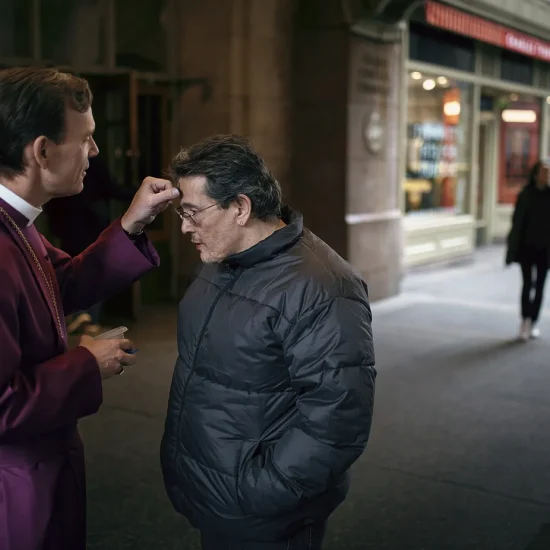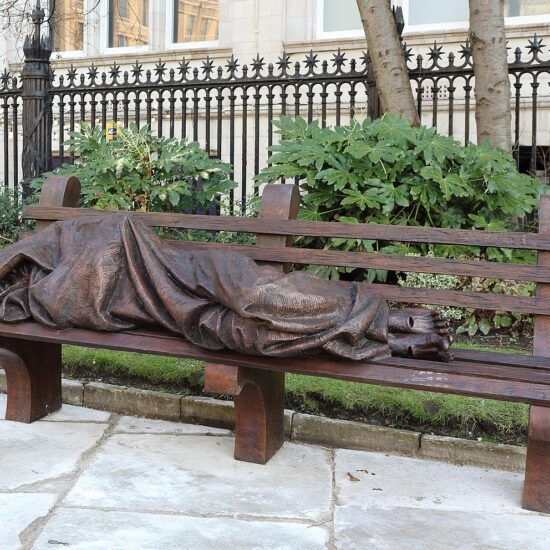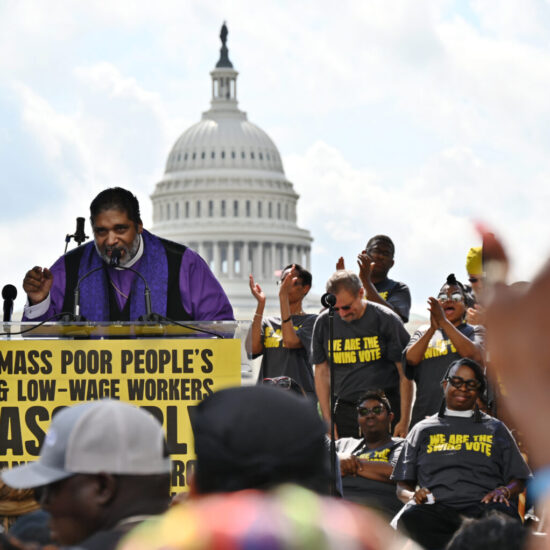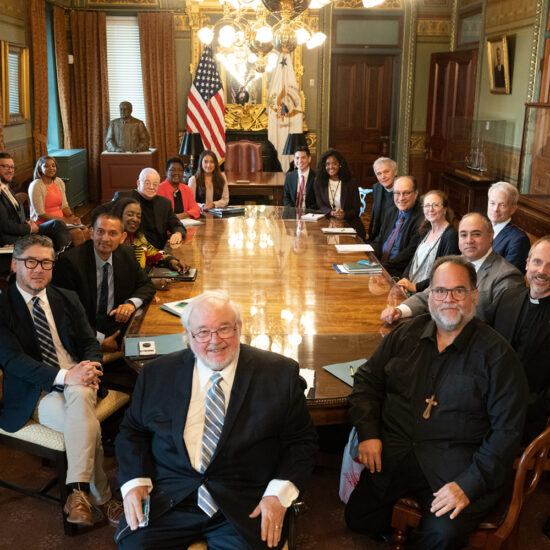LIBERTY — A recent Associated Press article picked up by The Huffington Post portrayed the plight of the poorest county in the United States — Ziebach County, South Dakota, home of 2,500 Cheyenne River Lakota Sioux. More than 60 percent of the population lives at or below the federal poverty line.
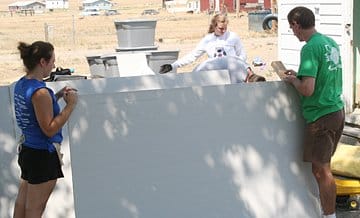
Lydia Pratt (left), Abby Pratt and Blane Baker — all members of Second Baptist Church, Liberty — prepare sheet rock for hanging at a renovation project in Bridger, S.D. The trio worked in the community with Together for Hope West, part of the national Cooperative Baptist Fellowship's Together for Hope Rural Poverty Initiative. Begun in 1991, the 20-year partnership effort targets the 20 poorest counties in the United States.
|
Cooperative Baptist Fellowship, through its Together for Hope Rural Poverty Initiative, is partnering with the Lakota to provide a way out through community development opportunities. Launched in 2001, Together for Hope is a 20-year initiative targeting America's 20 poorest counties.
An arm of the national program, Liberty-based Together for Hope West focuses on four counties in South Dakota — Ziebach, Shannon, Buffalo and Todd — and on four of seven targeted counties along the Texas/Mexico border in Texas — Dimmit, Maverick, Presidio and Zavala.
Together for Hope West Coordinator Chris Thompson and members of Second Baptist Church, Liberty, have concentrated efforts in Bridger, a small and isolated community of traditional Lakota. And they are already making a difference.
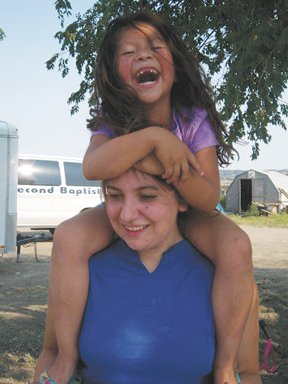
Lydia Pratt gives Alika a ride on her shoulders during a Second Baptist Church, Liberty, trip to the Cheyenne River Reservation in South Dakota. Through Together for Hope West, Second Baptist partners with the Lakota to assist with a variety of community development needs.
|
For years, the people have had to travel to a convenient store seven miles away to purchase eggs that sold for $3 to $4 per dozen. Together for Hope West gathered materials and mobilized volunteers to build a coop and provide chickens. Today, people in the community donate egg cartons and are able to purchase eggs from the project at a much lower price.
"That has forced area merchants to drop their prices as well to about $2 per dozen," Thompson said. "People in Bridger have said, 'We are the forgotten ones at this end of the reservation.' But they have gone on to become an economic driver."
While Together for Hope works for change in the economic and social systems, it also does specific projects. Volunteers through the initiative have helped rebuild three pow-wow grounds, done home improvement work for elders and worked on other community projects.
The partnership centers on the four "R's" of community development and cross-cultural relationship — reciprocity, relationship, reconciliation and respect, Thompson explained.
And participants are careful to follow six core values — local visioning, leadership, project development, long-term sustainability, local experience in education and engagement and an emphasis on process rather than outcome, he added.
All projects stress collaborative effort. "We don't do giveaways. Instead, we do sales because there is dignity in that," Thompson said.
Because there are few functioning businesses in Bridger, Together for Hope West provides sales. When a project is underway in the area, the community is invited to work. Hours worked are tracked as credit to be used at the sales.
At a recent sale, one woman laughed that her husband was out working, "and here I am spending his money." She had never had the opportunity to even joke about it in the past, Thompson said.
The Liberty office has only been working with the Texas counties for about a year, Facilitator Mark Buhlig explained.
"We're working hard on understanding what others are already doing, and we're also developing new relationships in the area we've been assigned," he said. "We're trying to develop a community-driven agenda."
One of the earliest projects, Road Trip Academy, began through William Jewell College. Last summer, three recent Jewell graduates participated in internships to explore service as an occupation and as a way of life. The three assisted with flood relief efforts, helped begin a women's shelter in Maverick County and worked in literacy programs. The academy will be a long-term offering.
A team of Jewell students will do literacy fairs in the region during spring break in Eagle Pass, Texas, as well.
Jewell's Students in Free Enterprise chapter also is assisting with a wind-energy generator project to reduce energy costs.
Spiritual development is at the heart of involving students in the academy and in encouraging them to participate in specific projects. "I'm much more interested in the spiritual formation of the group going than in exactly what they accomplish," Buhlig said. "There is profound spiritual transformation of each individual who goes on a mission trip."
Thompson caught a vision for community development as a means to partner with people trying to move out of poverty when he made his first trip to the Cheyenne River Reservation in August 2003. When he returned to Missouri, he mobilized Second Baptist and his neighbors to collect blankets — an effort dubbed "Project Warm Embrace" — to distribute on the reservation.
The following year, the Liberty attorney officially became the Together for Hope facilitator to the High Plains area, and the blanket project became a non-profit, Warm Embrace Inc.
In 2009, he formed Road Trip Project Inc. as a way to mobilize volunteers specifically for South Dakota. The effort became Together for Hope West with CBF's national coordinating council late last spring and approval at the General Assembly in June, and took on the Texas emphasis.
The focus for Together for Hope West will always be relational. "It's the relationship that's important — to listen and share the person's story and to hear the voices silenced by circumstances…even when what we hear is hurtful," Thompson said. "We must be a part, be a presence in people's lives. Sometimes that's a challenge."

